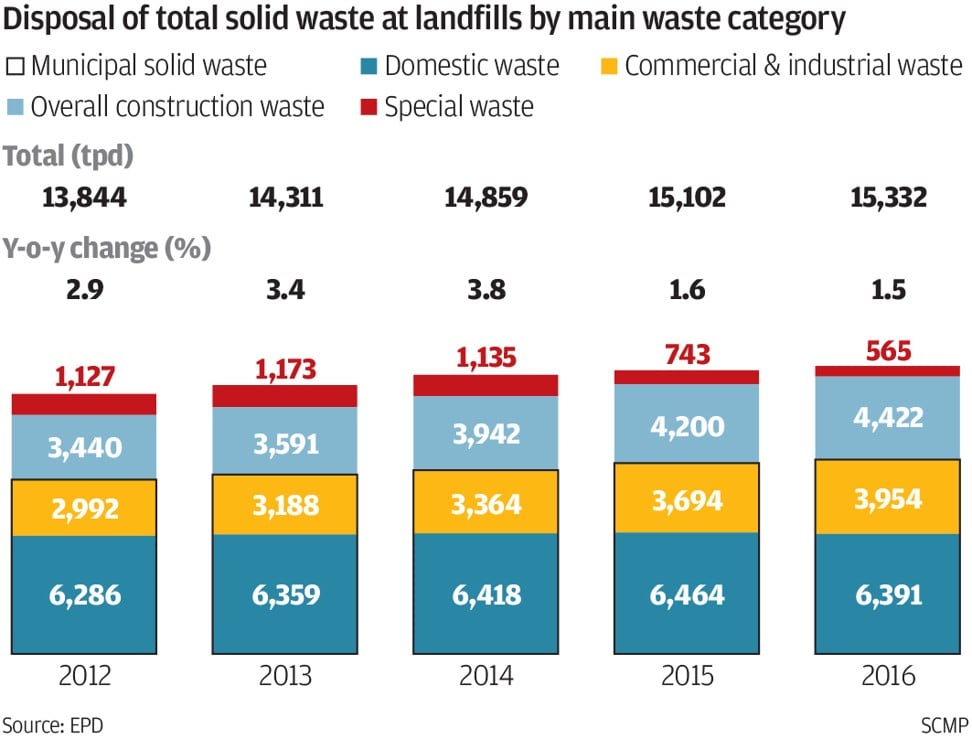
Why Hong Kong needs to act on waste charging policy now
As early as 1994, the Environmental Protection Department commissioned a waste reduction study, and identified a basket of measures – including waste disposal charges – to this end. Since then, repeated public consultations on waste management strategies have been launched, but the responses seem to have had little effect.
Waste fee plan set for delay as Hong Kong Legislative Council must still review possible bill
With Hong Kong’s freedom of the press and the screening of the documentary film Plastic China , which disappeared from internet searches on the mainland within a few days of going viral, Hongkongers are becoming more aware of plastic pollution and the overall waste crisis.
Plastic pollution: 3 tonnes of trash picked up on beaches for Earth Day

In the last few months, I have been invited by many corporations, non-profit entities and universities, to brief them on the waste crisis confronting Hong Kong, with an emphasis on plastic pollution.
I encourage them to embrace the three “must-haves” that are crucial to resolving our waste crisis: policy, financial incentives and education.
Edwin Lau Che-feng, executive director, The Green Earth

